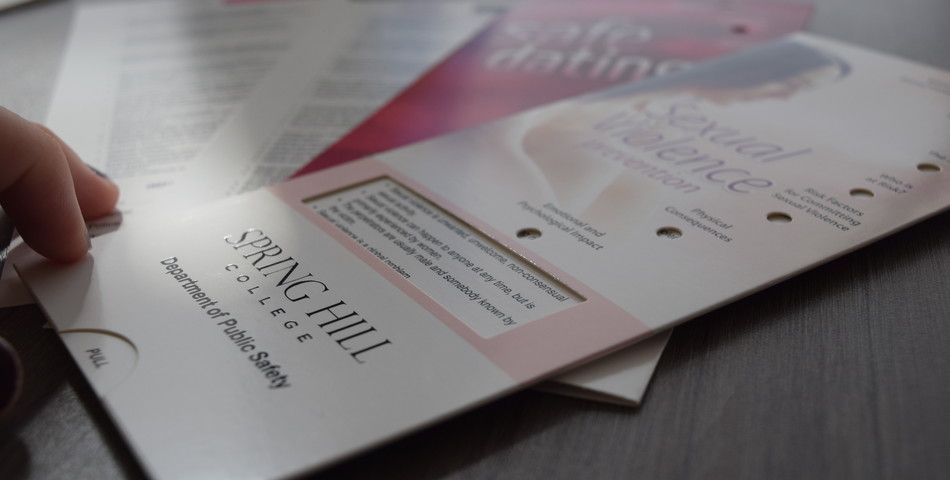In recent weeks, sexual assault has been hot topic, most recently with several allegations against film mogul Harvey Weinstein throwing him into a suddenly not so flattering spotlight.
This comes to surface weeks after President Trump’s Secretary of Education, Betsy Devos, implemented revisions to Title IX regulations to preserve the rights of those wrongfully accused.
Title IX was originally a revision to the Education Amendments of 1972 regarding discrimination based on gender and sexuality, stating “No person in the United States shall, on the basis of sex, be excluded from participation in, be denied the benefits of, or be subjected to discrimination under any education program or activity receiving Federal financial assistance,” (U.S. Department of Education). In 2011, President Barack Obama issued revisions to the law. The revision stressed the importance of combating sexual assault head on in hopes of preventing future offenses.
In September, Devos revisited these changes and made revisions; these are intended to protect those wrongfully accused of the crime.
In a press conference on Sept. 7, Devos said, “Any failure to address sexual misconduct on campus fails all students. Any school that refuses to take seriously a student who reports sexual misconduct is one that discriminates. And any school that uses a system biased toward finding a student responsible for sexual misconduct also commits discrimination.”
Devos’ initiative stresses the importance of finding the truth for all parties involved, and doing so in a way that neither benefits nor discriminates against any party.
“To implement sustainable solutions, institutions must be mindful of the rights of every student. No one benefits from a system that does not have the public's trust—not survivors, not accused students, not institutions and not the public,” Devos said.
She called for improvements on many fronts including administrators, students, medical staff, and clergy. She also asked the public to act.
“We must continue to condemn the scourge of sexual misconduct on our campuses. We can do a better job of making sure the handling of complaints is fair and accurate. We can do a better job of preventing misconduct through education rather than reacting after lives have already been ruined,” DeVos said.
The #MeToo movement has taken social media by storm, helping acknowledging a much bigger problem. This is a hashtag used by sexual assault victims to spread awareness and empowerment against these crimes.
While it is unclear where the original post was cited, actress Alyssa Milano shared a copy of the post in a tweet. Milano spoke out in a blog post last week about the Weinstein scandal.
“While I am sickened and angered over the disturbing accusations of Weinstein's sexual predation and abuse of power, I'm happy -- ecstatic even -- that it has opened up a dialogue around the the continued sexual harassment, objectification and degradation of women,” Milano said.
The original post asked victims of sexual assault to simply tweet, post, or publish #MeToo to show the true scope of the issue.
The hashtag started several conversations across the internet with people sharing their stories, while empowering those that have had similar struggles.
“Sexual misconduct is a conversation now because Devos came out and said we’re being too aggressive with Title IX, but we are not being aggressive enough because it’s still happening,” student Haley Thomas said.
The simple two words seem to have piqued the curiosity of many, and spearheaded new questions.
“If you put it out there, people are going to ask. People are going to see it and either they are going to know what it means or they are going to ask you because they want to know,” Thomas said. “People will become aware, but not aware as in ‘let me help you’ and make you feel better, but as in this is an issue and we need to stop sweeping it under the rug.”
#MeToo took Twitter by storm, cited in over 100,000 tweets in the first day of its use.
Sexual assault is a difficult subject for many. Some may even feel uncomfortable talking about the issue. It is important to know there are places you can turn.
“We have a Sexual Assault Response Team (SART) on campus that is now housed under the Wellness Center, giving it a needed layer of confidentiality. The Rape Crisis Center is an off-campus, confidential resource with whom we partner on several community efforts. And, of course, our Public Safety officers and staff always stand ready to help,” said Spring Hill College President Christopher Puto.
Sexual assault is on vast display, and #MeToo started shedding light on the depth of this situation.
